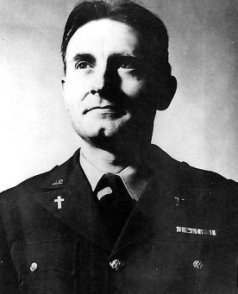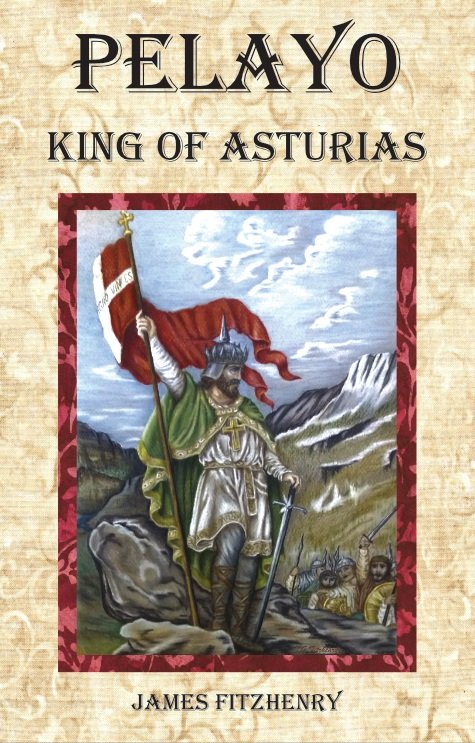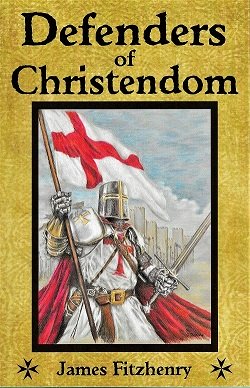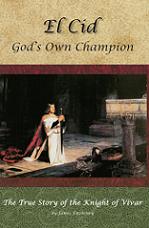Father Kapaun

Father Kapaun
By Anya Watner
“Out of suffering have emerged the strongest souls....”
Emil Joseph Kapaun (pronounced KAY- Puhn) was born in 1916 in Pilsen, Kansas. Although he had only one sibling, his family was one of the poorest in the town, and hard work and industry were necessities on the Kapaun’s farm. Emil and his brother, Eugene, grew up in a stable Catholic household. Despite difficult times, Emil found time to be a fine student; he completed grade school in only six years.
Two quotes from his diary will perhaps sum up Emil’s boyhood, which was full of hard work, goodness, and humor. On the first page of his journal, he scrawled, "‘No Trespassing. Please Keep Out If You Don't Want To Be Killed. Signed. X.Y.Z.’" Later on, he wrote: "‘Pray hard, receive the sacraments frequently, and above all give good example.’"
When he was 14, Emil's parents sent him to finish two years of high school at Conception Abbey in Missouri. This was on the recommendation of the Kapaun’s pastor, who, knowing that Emil was already thinking of becoming a priest, thought this all-male, Catholic high school run by the Benedictines would encourage a vocation.
Emil was funny and popular, remembered as being "’... one of the most normal men.’" But while he joked with friends about Conception becoming a co-ed school, exclaimed happily in his journal about the candy, overalls, and smashed bananas his mom had sent him, and endured jibes from the school newspaper's gossip column at his being seen "‘strolling around the campus with four young maidens,’” he was thinking of his vocation.
In college, he was nicknamed "The Brain,” tutored others in Greek and Latin, and gave briefings on philosophy in his room before tests. Despite his resolution to "‘try to get low grades‘" because he didn't "‘want to be a leader,’" he graduated at the top of his Greek and Logic classes.
Next, after barely working out the expenses, Emil traveled to St. Louis to the diocesan seminary. In only four years, he was ordained a priest and sent back to Pilsen as an assistant to Fr. John Sklenar. Just being with his superior offered the new priest many opportunities for sacrifice, as Fr. Sklenar could be irritable and unreasonable.
After the outbreak of WWII, Fr. Kapaun began working as a part-time chaplain for the troops at a military airfield in Herington, Kansas. It was his first experience working with American soldiers, and he loved it.
To add to his responsibilities, Father Kapaun was made pastor of St. John Nepomucene church in Pilsen upon (now) Monsignor Sklenar's retirement in 1943. The situation was far from ideal, however. As Father Kapaun wrote to his bishop, "‘There are people here, relatives and friends, who are superior to me (in age, in school, etc.) Some find it difficult to look up to me as their spiritual superior. They do not say anything, but from the way they act and the way they perform their spiritual obligations, I know they find me a great moral obstacle.... Some of these people feel that I still... hold against them things they did in former years. I could tell them a hundred times that all is forgotten - yet they will not be assured but will hold back and be afraid. That is the human element and it creates a serious moral obstacle....’"
So, Father Kapaun sought permission to enlist as a full-time army chaplain: he felt obligated to leave Pilsen, and he loved working with the troops. Permission was granted, and he went ahead with his plans.
Accordingly, in April, 1945, after training at Fort Devens, Massachusetts, and filling a temporary assignment in New Delhi, Father Kapaun was sent to Burma. Even after the war ended in August of the same year, he was shipped on to India and did not get back to the U.S. until 1946.
Upon his return home, Father Kapaun attended the Catholic University in Washington, D.C., and received his Masters in Education in June, 1948. By this time, he had already been appointed parish priest to Holy Trinity Church in Timken, Kansas. This assignment only lasted six months, but the energy with which he applied himself to it was typical, and the parishioners responded to his kindness and industry. Unlike any of his predecessors, he mowed the grass himself; he rolled up his sleeves to help the men in the parish haul gravel and spent many afternoons sanding pews; he introduced more religious services and encouraged vocations.
But despite his growing attachment to the people in Timken, Father Kapaun still wanted to work as an army chaplain, and by 1948, he was in Fort Bliss, Texas, working as one of only two Catholic chaplains stationed there. (This was despite the fact that 40-60% of the 35,000 troops shipped there in 1949 were Catholics.)
Only a year later, Father Kapaun was sent to Japan and assigned to the 8th Cavalry Regiment of the First Cavalry Division, headquartered near Tokyo. Fr. Kapaun wrote his parents that “cavalry” did not, in fact, mean “horses,” and that he loved his busy life.
As the Korean War became imminent, Father Kapaun’s regiment intensified its training. This was necessary because in 1950, the U.S. sided with the South Koreans after they were invaded by Northern forces in June, and soon American troops were being shipped to South Korea. The 1st Cavalry landed in Pohangdong in July.
At the side of the GIs he served, Father Kapaun was plunged into warfare. Weeks of close combat and brutal fighting caused some of the troops to go insane. Conditions were nasty: under-trained soldiers with low morals, scorching temperatures, torrential rain, swarms of mosquitoes, exhaustion, lack of shelter, scarcity of food and water, and vicious combat were among the hardships Fr. Kapaun faced. Even in the middle of it all, he managed to write home cheerfully on paper he'd ransacked from an abandoned Korean home. Sometimes he downplayed the danger that he was in, but once he confessed to a friend, "‘This fighting is nerve-wracking.... It seems [unreal]. I don't know if I will live through the day or night. We are close to heaven, but really we are more like in hell.’"
And hell it was. Father Kapaun threw himself into it, carrying litters, burying stinking enemy bodies, celebrating Mass on stretchers or near the front lines with shelling 150 yards away, and convincing troops to attend to religious duties. Time after time, he crawled out onto the battlefield under enemy fire to rescue wounded soldiers. This earned him his share of narrow escapes: his helmet was blown off, his pipe stem was shattered by a sniper's gunfire, and more than once, he admitted to being "‘messed up with blood.’" With his Mass gear in the pockets of his field jacket, he hopped from foxhole to foxhole, saying a quick prayer with whomever he found inside. His troops loved him; he was a man's man: rugged, friendly, funny, and knowledgeable about sports.
As he and his troops continued to fight and change positions with the shifting fortunes of the War, Father Kapaun wrote candidly to some friends, "‘I thank you for all the prayers.... My boys need them worse than I do, for some way or another I have not been hit, although we were in some tough spots with bullets whistling past our heads. A fellow's nerves take an awful strain and a fellow surely can pray when these big shells explode around the area. It is no fun.’"
And, somehow, amidst it all, he was holy, too. One of the troops who knew him wrote later, "To all [the soldiers,]... he was simply 'Father,' and each of them, when trouble came, drew courage and hope and strength from him.... He was a priest... of great piety, but there was nothing ethereal about him, nothing soft or unctuous or holier-than-thou. He wore his piety in his heart.”
Did he remember how at his ordination, he had been determined to spend himself for God? "‘I was determined to do that cheerfully, no matter in what circumstances I would be placed or how hard a life I would be asked to lead.’" Now, as he prayed with and preached to "the boys," heard confessions, tended wounds, hauled bodies, celebrated Mass, and forced himself to stay awake all night to be on guard for enemy troops, he rose to the occasion.
By Oct., 1950, the Chinese had sided with the North Koreans and, unknown to their enemies, moved across the Yalu River into North Korea. Victorious U.N. troops had fought their way across the 38th parallel, and now they were summoned farther north to help the struggling South Korean troops against the recently-discovered Chinese. Later in October, the 1st Cavalry moved towards Unsan, North Korea, hoping to aid their allies. Unbeknownst to the 1st Cavalry, however, the South Koreans were already retreating, and when the Americans dug in at Unsan, they were virtually alone and exposed to the Chinese.
When the enemy finally attacked, the American troops were taken by surprise, and the 1st and 2nd Battalions of the 8th Cavalry retreated, while Fr. Kapaun's unit, the 3rd Battalion, acted as a rear guard. The Chinese surrounded them, and they pulled into a defensive perimeter, which was soon infiltrated by enemy troops. Two days later, the battalion received heartbreaking news: their fellows couldn't break the Communist lines. They were trapped.
Some GIs managed to escape, but Father Kapaun repeatedly refused. Those who were with him testified that he remained by choice. He "decided to allow himself to be captured so that he could remain with the wounded Americans." Towards nightfall, just before the Chinese began to bombard the 3rd Battalion's lines, Fr. Kapaun jumped into the dugout that held some of the wounded men. Finally, when some of the Americans ran out of ammunition and started throwing rocks instead, the Chinese prevailed. Fr. Kapaun, the only unharmed man in the dugout, was captured with his fellows. 600 of the 800 men in the 3rd Battalion who had arrived in Unsan had been killed or captured.
For more than two weeks, the hundreds of captured troops marched towards Pyoktong, north of Unsan. The guards took the soldiers' boots, heavy clothing, and water purification tablets, put them on a starvation diet, and shot or abandoned those who straggled in the freezing weather. Constantly mistreated and, from lack of vitamins, blind at night when they marched, the troops took to carrying those who couldn't keep up, rather than leaving them to freeze to death. Even so, dozens died.
Father Kapaun, suffering from frostbite, would go down the lines praying the rosary, smiling, and offering encouragement. Even though it was agony for a weak man to carry a stretcher, Fr. Kapaun refused to give up this chore. Mike Dowe, Jr., who shouldered a litter in front of Fr. Kapaun on the way from Pyoktong to their prison in "the valley” in Sambakol, wrote that "after a rest he'd just call, 'Let's pick 'em up,' and all down the line the guys would bend and lift, and follow him."
Reading of the conditions in the valley, one is reminded of a Nazi concentration camp - starvation, disease, 40-below-zero temperatures with little protection, abusive captors. Conditions were grim, but there were some men among the prisoners who refused to let their spirits be broken. Fr. Kapaun was one of these.
Despite the fact that it had been forbidden by the Communists, he constantly led prayers. Once, he spent all day chipping steps into the ice so men carrying water wouldn’t fall; he undertook the repulsive task of picking lice from those too weak to do it themselves; he slipped away to clean the toilets when everyone else stood around arguing who should do it; he traded his watch for a blanket and made it into bandages; he volunteered to dig graves in the frozen ground, while others tried to avoid it; he took the “old bandages, foul with corruption, and sneaked them out and washed them and sneaked them back in again.... He held [the sick men] in his arms like children as delirium came upon them.”
One prisoner remembered, "‘When others were getting meaner Father Kapaun was only kinder. The longer we were in the valley, the rougher it got, and the rougher it got, the gentler Father Kapaun became.’" Another recorded, “’It was his actual deeds that gave the prisoners such a tremendous impact as they watched him living by God’s law. In [short,] Chaplain Kapaun practiced what he preached.’”
After the men were marched back to Pyoktong in January, 1951, Father Kapaun continued to be one of the leaders in the miserable group. He patched up huts, beat pans out of scrap metal, and built an outdoor fireplace. Every morning, he got up early in the numbing cold to heat water for everyone else. Then “he’d bring in this pan full of hot water, calling cheerfully, ‘Coffee, everybody,’ and pour a little into every man’s bowl.
“And though there was no coffee in it, somehow this sip of hot water in the morning gave each man heart to rise and pick off his lice and choke down his bowl of soupy millet, and face... another day of captivity and abuse.”
On Easter Sunday, 1951, Father Kapaun openly flouted the camp rules and held an Easter service. It was impossible to celebrate Mass (because he didn‘t have his Mass kit), but he told the story of the Passion and led the men in the Stations and Rosary.
Amidst the despair of his fellows that so easily led to death, Father Kapaun’s own end was drawing near. Suffering from a blood clot and from the agonizing bone-ache brought on by starvation, Fr. Kapaun did not scream or pound the ground like his fellow prisoners, but sometimes his eyes would fill with tears from the pain.
Finally, he seemed to be on the mend. Then, after he got up one freezing-cold day to administer Extreme Unction, he caught pneumonia.
The Chinese had long held off from directly abusing him (most
likely because they knew that if they touched him, they would have a revolt on
their hands). But they seized this opportunity to take him to the “hospital.”
However, it “was no hospital at all, but a death house so dreadful that I will
make no attempt to describe it....” The prisoners in Camp No. 5 called it “the
dying place,” and for Fr. Kapaun, it was no exception. Before the guards
carried him off, he smiled at the group of weeping men who had gathered around
him. “’Tell them back home that I died a happy death,’” he said.
***********
In his book, A Shepherd in Combat Boots, William Maher writes that Father
Kapaun himself was the principle cause of his death. By constantly sharing his
starvation rations and giving away pieces of clothing, Maher asserts, he
“unwittingly” became physically weaker and lowered his resistance to disease.
But I think that Fr. Kapaun’s sacrifices were far from “unwitting.” He was a
common-sense army man with a great deal of experience, and I am sure that as he
convinced others to take his property, he knew exactly what he was doing. We
can be sure that it was not easy for him. Greater love has no man than this,
that a man lay down his life for his friends. (John, 15:13)
When I read Fr. Kapaun’s story, I cried because I was amazed that someone so real and manly could be so good and Godly. But then I had to remember that amazement won’t get me very far. Every day, when I get out of bed, I can try to remember that Fr. Kapaun was not a hero by accident. Just as the most beautiful beach is made up of tiny grains of sand, so must Fr. Kapaun’s actions have been the result of years of small sacrifices, years of serving God in the little things as well as he could.
The fact is, thank God, that most of us don’t have to face circumstances like those Fr. Kapaun faced. But every day, we have to confront the life that God gave us, and we can imitate Father’s kindness and humility in all the little things. And when it seems impossible, remember that as he was carried away to the dying place, Fr. Kapaun told “his boys:” “...When I get up there, I’ll say a prayer for all of you.”
Editor's note: On 11 April 2013, Father Kapaun was awarded the medal of honor by President Obama. Kapaun was honored for his actions in the battle of Unsan, where the 8th Cavalry was being overrun by Chinese forces. Kapaun aided the wounded with no regard for his own safety, often leaving the safe perimeter U.S. forces had established to go out and rescue injured soldiers. Kapaun chose to remain behind and be captured by Chinese forces in order to care for wounded American soldiers.
Return to Roman Catholic Saints Home Page from Father Kapaun
Now Available!!
Pelayo's resistance initiated the nearly 800-year-long Reconquista to take back his country from the ruthless invader who had conquered his homeland and sought to erase his culture and his faith. His actions would lay the foundations of a Kingdom for Christ that would eventually reach around the world and spread the Catholic faith to millions of souls. Read more...
Please help us continue to bring high quality books to our readers at the lowest possible price! Click the link below! Thank you!
Now Available!
Catholic Vitality Publications presents . . .Brand new by
James Fitzhenry
Now in paperback!
Battles - Honor - Miracles! This
book is filled with amazing stories of little-known Catholic heroes presenting
spectacles of bravery and valor never exceeded in all the annals of history. read more. . .
Now Available for $24.95
Also available:
Catholic Vitality Publications
Roman Catholic books currently published by Catholic Vitality Publications:
El Cid, God's Own Champion
-the amazing true story of the life of Rodrigo Diaz, El Cid!
Available for only $22.95
St. Fernando III
A Kingdom for Christ
- King St. Fernando III, born 100
years to the month after the death of
the Cid. His life was filled with miracles
and many conquests!
Available now for $26.95
Discounts available for bulk
orders and for bookstore
retail sales! Just contact us




